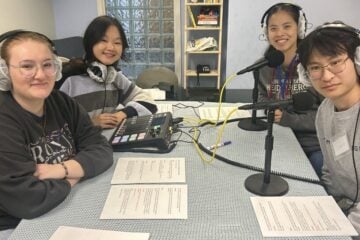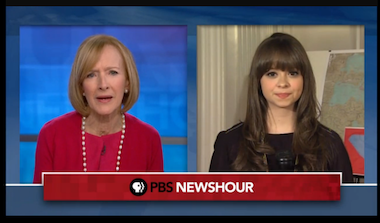Rescission of CPB funds seen as devastating blow to localism

Glyn Lowe / Flickr
Public media leaders predicted a devastating loss of stations after the House voted early Friday to approve the rescission package that zeroes out CPB funding for the next two years.
The vote was 216-213. Two Republicans voted against the $9 billion rescission package, which claws back support for foreign aid programs and CPB’s forward-funded $535 million annual appropriations for fiscal years 2026 and 2027.
The rescissions will “decimate” public media, America’s Public Television Stations CEO Kate Riley said in a statement early Friday.
CPB distributes more than 70% of its appropriation to local stations. Those funds will be cut off Oct. 1, Riley said. She predicted that many stations will be forced to go dark.
“The proponents of this legislation were myopically focused on defunding NPR and PBS, but what this bill will actually do is devastate independent local stations — some of which are not even members of NPR and PBS and don’t air their programming,” Riley said.
The House Committee on Rules began wrangling over the package around 6 p.m. Thursday.
The House took up the package Thursday following Senate passage of its amended rescission bill, which restored $400 million to the President’s Emergency Plan for AIDS Relief, a global health program. The House first approved the White House’s original $9.4 billion rescissions request June 12.
Discussion on the rescission in the House Committee on Rules started around 6 p.m. Thursday. The House reconvened at 10 p.m. to debate and proceeded to a vote around midnight.
“The public will remember who stood with Big Bird and who strangled him,” said Rep. Teresa Leger Fernández (D-N.M.) during the floor debate. Fernández, a member of the Rules Committee, had proposed to strip the CPB rescission from the bill during the earlier hearing. It was rejected on a party-line vote.
NPR CEO Katherine Maher said in a news release that the rescission is an “unwarranted dismantling of beloved local civic institutions.”
“If a station doesn’t survive this sudden turn by Congress, a vital stitch in our American fabric will be gone for good,” Maher said. “Public media is a resilient civic good, its organizations dedicated to public service. Tonight, our network’s service to the nation suffered a tremendous setback. Together — and with support from listeners and readers in communities around the nation — we will work to rebuild.”
Clint Schaff, GM of KUAF in Fayetteville, Ark., said in NPR’s release that CPB funding covers 16% of KUAF’s operating budget.
“While KUAF is a resilient mid-market operation that will work to survive this challenge, I fear for smaller stations across the country that may not be as fortunate and could be forced to go dark, and what that means for the network as a whole,” Schaff said.
Tami Graham, executive director of KSUT in the Four Corners region of Colorado, said in the NPR release that the rescission is a “devastating blow” to the region and the tribal communities KSUT serves.
“The loss of nearly 20% of our budget will force us to make impossible choices about maintaining our emergency alert systems, local journalism, and the community programming that serves as a lifeline for people living in what is already a literal news desert,” Graham said. “This cut is particularly cruel to Native American communities who rely on KSUT as their primary source of emergency information and local news, especially in areas where internet access remains unreliable.
“While we remain committed to nurturing the public square of the Four Corners region, this funding loss will significantly hinder our ability to serve our neighbors throughout the Four Corners with the freely accessible journalism and programs they depend on.”
Current Digital Editor Mike Janssen contributed to this report.







